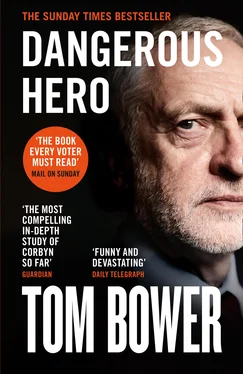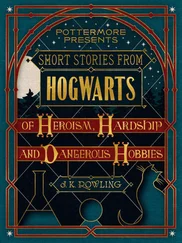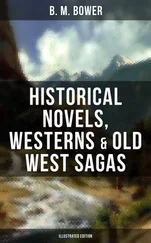His one task was to teach Caribbean geography four times a week to third-form boys, all of whom had passed the 11-Plus, in classes of about thirty-five. Later, he would exaggerate that there were seventy pupils in his class. ‘It was a really defining moment of my life,’ he would say, ‘because I was thrown in at the deep end as an eighteen-year-old.’ He kept ahead by the time-honoured ruse for beginner teachers of reading the textbook in advance of the lesson, then reciting it. In years to come, he would not admit to the school’s elite status. Dissembling further, in January 2018 he told GQ magazine that he had been ‘working at schools and theatres and taught polio-stricken children in camps for the victims’. In truth, he worked at just the one school, helped with a single production in one theatre, and only briefly appeared at one camp for polio victims. There was a charity for such children attached to the town’s university, and a local organiser recalls ‘one white man helping’, but did not identify him as Corbyn. His only job was to teach. Years on, he would boast that his experiences taught him to control a crowd and to deal with a crisis. His students recall the opposite.
Standing out with his pale skin, strange ‘bouncy walk’ and unusually long hair, and always wearing the same clothes – later dubbed ‘Oxfam-reject style’ – he faced a class which, Robert Buddan, one of his pupils, recalls, ‘teased him. We were a bit troublesome and didn’t make things easy for him. He was a good target.’ Asking his charges to explain Jamaican swearwords did not improve Corbyn’s standing. Faced with boys who spoke out in class and directly challenged any poor mark, he regularly exploded in anger. ‘He would shout at us and turn red,’ says Buddan. The apprentice teacher was also unable to add up the marks he awarded for classwork accurately, and the boys frequently complained that his final totals were wrong. He was soon mocked across the school as ‘Fire Red’, especially after one particularly humiliating incident. While Corbyn’s attention was distracted, a boy called Michael (‘Mad’) Reid crept up behind the seated teacher and clipped a lock of his long hair. Corbyn leapt to his feet, lunged at the laughing boy and chased him through the school, at one point squeezing through a window on the first floor, keeping up the chase until he lost the trail. Sheepish and red-faced, he returned to the classroom. No one was punished by a detention or a caning.
At weekends the VSO volunteers would join up with Peace Corps aid workers from Canada and the USA, and meet local girls to drink Old Charlie’s rum and dance to rock music. Corbyn never took part. ‘He didn’t mix with us,’ recalled Dennis Dawes, another VSO cadet and later a Hampshire police officer. ‘He was serious-looking.’ Corbyn even avoided the Christmas Day party at the British High Commission. The unsociable teenager came to notice just once, in November 1967, when he was working as a lighting technician at The Barn, the island’s first professional theatre, which was staging a production called It’s Not My Fault, Baby . Otherwise, he spent weekends with groups of ten Kingston College pupils hiking across the hills above the town and towards the 7,402-foot peak of the Blue Mountain. On one trip to the north coast they watched refugees from nearby Cuba landing on the beach. One hundred miles to the north, a heroic figure dressed in military fatigues was fighting American imperialists.
During Corbyn’s first year in Jamaica, the island was on the edge of turmoil. Fascination with Fidel Castro’s Cuban republic, and the recent death of Che Guevara in Bolivia, had spread unrest across the region – although, unlike those in South America, Fidel’s few disciples in Jamaica were cautioned against violence. Castro had judged Jamaica to be unsuitable for guerrilla warfare, and his intelligence service made only limited contact with the island’s young Marxists. These were led by Hugh Small, Trevor Munroe and D.K. Duncan, each inspired to overthrow the white colonial legacy by America’s Black Power movement, especially Martin Luther King, Stokely Carmichael and, most importantly, Malcolm X’s anti-Semitic Nation of Islam, which condemned ‘Zionist dollars’ bankrolling colonial oppression. ‘We were young, black agitators looking for answers,’ recalled Small. Ever since two British soldiers had been killed by black nationalists inspired by an American Trotskyist in 1965, Small had led the fight against Washington’s influence, but his group, dispirited and fragmented, was failing to throw off the shackles of British rule.
Towards the end of 1967, the socialist People’s National Party (PNP) unexpectedly lost a second successive general election to the centrist Labour Party. Many suspected electoral fraud. Following that defeat, Leroy Cooke, a Marxist, was appointed as the PNP’s youth organiser to agitate in schools. Peter Croft, a VSO cadet teacher who arrived at the same time as Corbyn, recalls their ‘endless discussions about Jamaican politics and the personalities involved’. Both young men read reports of the local socialists’ tirades against colonialism, imperialism, racism and the capitalists’ exploitation of Third World countries, and witnessed from the periphery the raw struggle between Jamaica’s rich whites and impoverished blacks. In conversations over a beer in a bar on Friday after school with four other teachers, Corbyn would discuss the unrest. ‘He asked about the difference between Labour and the PNP,’ recalled Victor Chang, one of his drinking companions, ‘and was interested in socialism. He was curious about Jamaican Marxism.’
Unknown to Chang, Corbyn was unsettled by Kingston College. His classroom overlooked the school’s large chapel, where once a week Bishop Gibson, the Anglican cleric who had founded the school back in 1925, still preached. The pupils were focused on academic excellence, and were proud of the school’s reputation as a powerhouse of sport. The grounds were located close to the island’s famous Sabina Park cricket ground, and England played the West Indies there in February 1968, but Corbyn was uninterested in that intense contest, or in the endless track competitions outside his classroom. The school’s motto – Fortis Cadere Cedere Non Potest (The Brave May Fall But Never Yield) – was painted in large letters on a wall overlooking the sports field. Equally irritating to him were the boys’ well-pressed khaki uniforms and ties, the compulsory combined cadet force, and the choir. Lest he forget religion’s importance, he could see Holy Trinity Catholic Cathedral across the road and, a little further down, St George’s school, a rival private college rigorously overseen by Jesuit priests. Taken together – education, sport, tradition, the army, organised religion and the quest for achievement – Kingston College epitomised nearly everything Corbyn loathed.
As 1968 began, the mood in Kingston became tense. Walter Rodney, a twenty-six-year-old Guyanese, arrived from Havana to forge an anti-capitalist alliance between radicals, Black Power supporters and what were called ‘the discontented’. Rodney was already well known to the island’s Special Branch. In 1962, while studying at University College of the West Indies in Kingston, he had travelled to Havana, where he met Fidel Castro, and returned to Jamaica with a plan to spread Marxism across the West Indies. Later that year he flew to a so-called peace congress in Leningrad, earning the CIA classification of ‘convinced Communist with pro-Castro ideals and an interest in Black Power’. Back in Jamaica, he took a small group of young Marxist graduates to ‘Reasonings’ – meetings across the island with the dispossessed and Rastafarians. Encouraged by Armando Velazquez, the Cuban consul on the island, he spoke about revolution at secondary schools, churches and youth centres. Although Rodney was banned by the school’s administrators from speaking at Kingston College, Corbyn heard about his lectures, and about CIA plots to overthrow governments in Cuba and across Latin America. He learned about the importance of the Soviet Union’s contribution to Castro’s revolution. Without Moscow’s assistance, the left’s ambitions across South America would have been snuffed out by America. And ever since the failed CIA-inspired invasion of Cuba at the Bay of Pigs in 1961, Jamaica had been treated as Washington’s appendage, and hated for that.
Читать дальше










